Games and children from the past to the present
The history of the game goes back to the most primitive societies known in human history. In archaeological excavations in many parts of the world, toys such as dolls, animal figures, game boards, and game tables have been found. The game, which is accepted as a natural part of human life today, has always existed. However, since it was not seen as a significant action until recent times, it has been a subject that does not have enough written sources for centuries. Games are indirectly mentioned in various works. For example, in the 12th century, Kaşgarlı Mahmut mentioned children’s games with music, and in the 17th century, Evliya Çelebi talked about the toy shops in Eyüp, Istanbul. Also in the 17th century, Dr. John Dee reported in his diary that the children played house and acted and talked to each other as if they were married. Although its importance is not widely understood and even it is often seen as “empty work” and “waste of time”, since the Middle Ages, the game has also been accepted as an occupation that provides both children and adults skills and helps them relax.
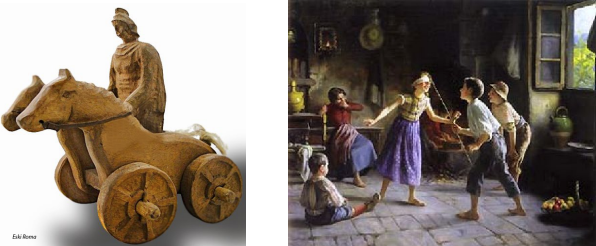
In summary, we can say that until the end of the 17th century, not only the view on the game but also the view on the child was quite different from today. From the 18th century onwards, especially in the 19th century, social consciousness began to develop, the value given to human beings as an individual increased, and naturally, the perspective on childhood began to change. A definition of “child” close to today’s was reached only in the 18th century. In this century, the views of thinkers such as Locke and Rousseau that children should not be seen as deficient or inadequate adults, on the contrary, that childhood is a very valuable stage in human life and that children are important beings, has been very effective in changing the widespread perception of children. We would like to say that the days when children at the age of primary school were thrown into life, expected to contribute to the family economy, and where the child was regarded as a small and flawed adult, are completely behind in the world of the 21st century. At least in today’s developed and developing societies, childhood is and the value of the game is known. The perception that play is an occupation that should be done only in spare time, outside of working hours, or outside of school and class is rapidly being destroyed. Today, the mentality that recognizes the necessity of play in children’s mental/physical development process and education is becoming widespread, realizing that play is one of the most effective learning and relaxation tools for all ages, especially children.
What is the game?
Although it is not possible to deal with the game in a single short definition, it may help us to understand the game by taking a look at how the game has been interpreted by some scientists and thinkers throughout history. Today, the game is defined simply by the Turkish Language Association as “Amusement that develops talent and intelligence, has certain rules, and serves to have a good time.”
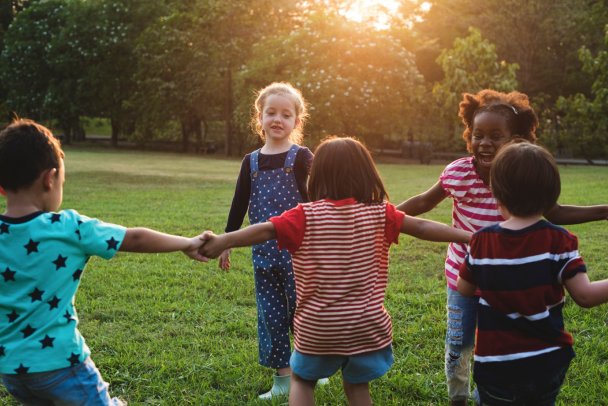
In his book “The State” in BC. 370, Plato mentioned the importance of children’s games in the learning of the child. Considered one of the most important doctors, astronomers, thinkers, and writers of the Golden Age of Islam, Avicenna (980-1037) defined play as a need for the child and saw it as an important tool for the child’s socialization. Montaigne (1533-1592), one of the French writers and thinkers of the 16th century, defined the game as the most real occupation of children. English philosopher John Locke (1632-1704) defined play as an instinctive activity. Locke stated that games should be used to make lessons more attractive for children.
The Genevan writer and philosopher Jean-Jacques Rousseau (1712-1778), whose ideas influenced the French Revolution, defined play as one of the most fundamental rights of the child. Rousseau recommended that children be approached with love and allowed to play. The German educator and writer Fredrich Fröbel (1782-1852) expressed the meaning of children’s games in our lives with these words: “Children’s games are a core of life. All people develop and grow there, and the most beautiful and most positive abilities of man rise there.” The Italian scientist and educator Maria Montessori (1870-1952), who observed children for years, said that play is the child’s work. Montessori named the first six years of life as the period of sensitivity and stated that this period should be well evaluated by supporting it with play.
Dutch philosopher and professor of history Johan Huizinga (1872-1945) said that the game is a “culture maker”. In this context, Huizinga, citing hunting activity as an example, stated that hunting emerged as a game in archaic communities and that hunting was a game before it became a culture. Huizinga said, “The mind, which is the creator of language, is constantly going back and forth between matter and what is thought by playing games” and summarized the characteristics of the game: “Every game is, first of all, a voluntary action. It seems to be an interruption in daily life, a relaxation occupation. But the play accompanies life, even with this regularly repeated quality, it forms in complementary as a part of it. It decorates life, fills its gaps, and becomes indispensable in this context.” According to him, every element that emerges as an element of imagination (artistic elements, inventions, initiative) shows how prone the mind is inclined to play. Famous scientist Albert Einstein (1879-1955), who won the Nobel Prize in Physics in 1921 for his work in physics and mathematics, defined the game as the highest form of research.
According to Soviet psychologist Lev Vygotsky (1896-1934), play provides the most suitable environment for cognitive mechanisms to function and is the process of creating an imaginary solution for the child. The game is an exploration and a new creation. According to the theory of Swiss psychologist Jean Piaget (1896-1980), who is known for his groundbreaking studies in the field of child development, play is a product that emerges with thinking. Jean Piaget argued that there is a close relationship between game development and mental development, and he discussed the development of the game in three different stages: 1. Exercise play (0-2 years old) / 2. Symbolic game (2-7 years old) / 3. Game with rules (7- 12)
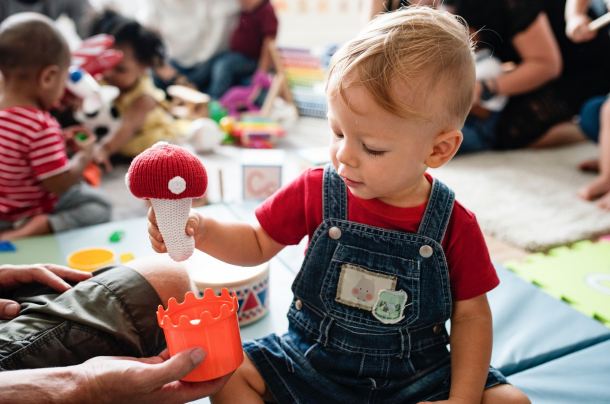
Piaget’s practice game dominates during the first 2 years of life. For example, the child drops the ball in his hand, picks it up, drops it again. This exercise game helps the child to strengthen their neurological connections and develop fine and gross motor skills. Symbolic games are games in which objects are used outside of their function or are played by replacing any assets. Games such as using the broom handle as a horse, the tablecloth as a cloak, the pot lid as a steering wheel, and the pans as a musical instrument can be given as examples of symbolic games. Games with rules are games in which rules are determined and applied. These games can be played with the rules determined by the children, or they can also be performed with predetermined and widely played rule games. Piaget saw the play as a process of re-establishing cognitive balance by perceiving stimuli from the environment.
Daniel Goleman (1946-), an American psychologist and consultant who got the attention with his theories on emotional intelligence, defines the game as follows: “Our brain comes equipped with a game impulse that pushes us to socialize. A child’s play both demands and creates his own safe space where he can face threats, fears, and dangers. Play provides the child with opportunities for self-discovery and a natural way to manage feared separations or abandonment.”
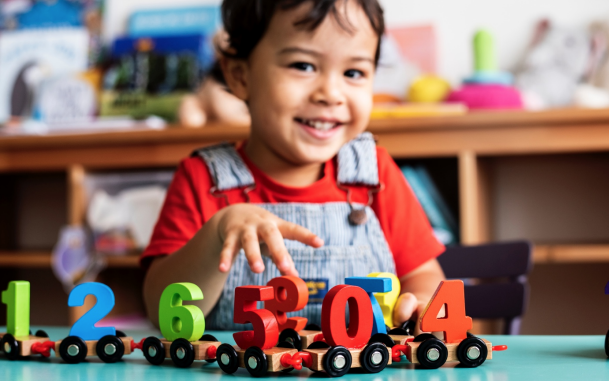
When considering early childhood education, it is very difficult to take a holistic and single definition of play. Although it is difficult to fit all aspects of such a broad concept into a single definition, play in early childhood is an effort that indirectly or directly contributes to the developmental areas of the child, with or without rules, in a free or structured format/time, based on voluntary participation in all circumstances and encouraging learning by having fun.
We would like to add that the game is as important for adults as it is for children. Irish Nobel Prize-winning author George Bernard Shaw (1856-1950) said, “We don’t stop playing because we grow old, we grow old because we stop playing.”
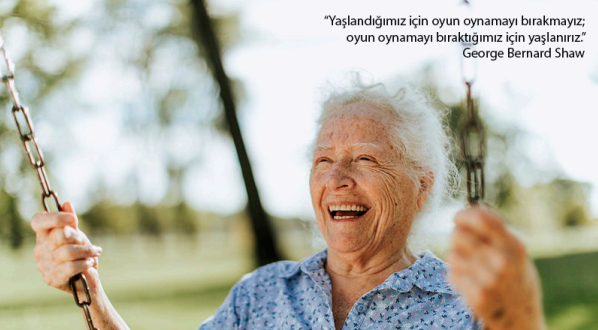
The game is for everyone. Not only humans but also animals play games. There is also entertainment among the things we have in common with animals, such as feeding and sleeping. Think otters struggling in the river, cats chasing laser lights, or puppies playing with each other. There are countless games that have different functions in our own lives and in nature.

Above, we briefly conveyed the perspectives of some thinkers and scientists on the game. Of course, there are so many ideas, definitions, and theories about the game. All of them cover studies that are worth examining and reading separately. Increasingly, research is being done on the function and benefits of gaming. 21. In the 21st century, the game gains more meaning in every aspect of life and finds itself more and more place as the most natural and effective means of learning while having fun.
The game prepares the child for life
Play is one of the most important ways for young children to acquire basic knowledge and skills. In the 31st article of the Convention on the Rights of the Child signed by the members of the United Nations in 1989, “States parties provide the right of the child to rest, to spend free time, to play and to engage in age-appropriate recreational activities, and to freely participate in cultural and artistic life.” It was emphasized that play is a right for the child. Play is a right for the child and, as Montessori states, it is their main job. Engaging with play in early childhood not only supports early brain development but also helps children best prepare for school and life, explore the world and their environment, learn and acquire basic skills. At the same time, the experience of playing games helps the child to move away from negative feelings such as sadness, anxiety, and anger, that is, to get rid of stress, which is the biggest enemy of the immune system.
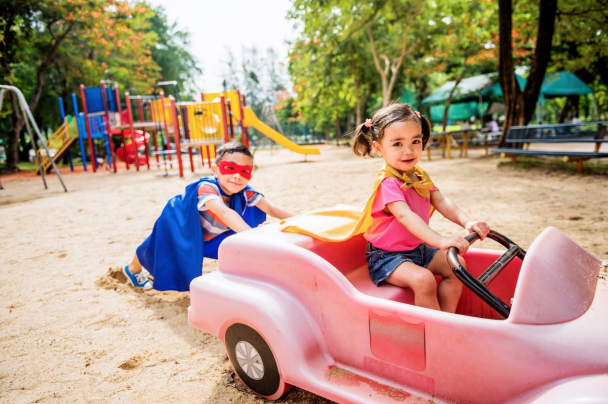
The first years are important
Scientific research over the last 30 years has taught us that the most important stage of human development is early childhood (0-6 years, aka pre-school). During these years, the foundation of cognitive and emotional skills (as well as cognitive and emotional intelligence), physical and mental health is formed. Studies have shown that playing games contribute to the development of nerve cells and neural connections (synapses). Synapses are specialized junctions that allow neurons (nerve cells) to transmit messages to other neurons or non-neuronal cells such as muscles or glands.
Although learning takes place throughout life, learning in early childhood occurs at a rate that will never be on par with other periods. With enough stimulation in the first 1000 days, a child’s brain creates at least 1000 neural connections (synapses) per second. Recent indications are that this rate could increase to 1 million per second. These connections are triggered in sensitive, loving, and fun environments where the child feels safe and receives close attention.
Okul öncesinde, 3 ila 6 yaş arasında çocukların sosyal ve bilişsel becerileri hızla artma potansiyeline sahiptir. In preschool, between the ages of 3 and 6, children’s social and cognitive skills have the potential to increase rapidly. In this period, it is essential that children meet with quality early education and care at home or daycare and learn through games, books, and songs by interacting with their peers, parents, and teachers. In the preschool years, play allows children to explore and make sense of the world around them, to use and develop their imagination and creativity.
American psychologist and author Daniel Goleman, in his book “Focus: The Secret Key to Excellence,” says, “Teaching management skills in preschool is more beneficial in preparing children for school than having a high IQ (cognitive intelligence) or failing to read beforehand.” Although there are many methods that can be used in the stable development of children’s management functions such as problem-solving, taking responsibility, communicating, cooperating, and empathizing, the most effective method when it comes to children is to allow them to play.
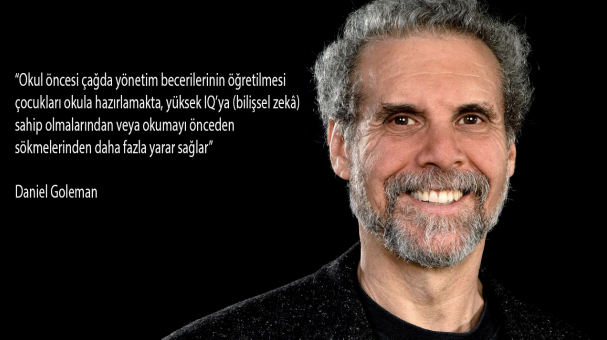
Play develops cognitive and emotional intelligence
Scientific research has revealed that playing at an early age is associated with higher intelligence (IQ) later in life. The game not only contributes to the development of cognitive intelligence but also contributes to the development of emotional intelligence, which has been emphasized to be at least as important as IQ – and even more important in recent years – in lifelong success. Skills in all areas of development, including cognitive, social, and emotional skills, can be promoted through play.
The game is finding meaning
Children play to make sense of the world around them and to find meaning by connecting with something known. Through play, children expand their understanding of their experiences.
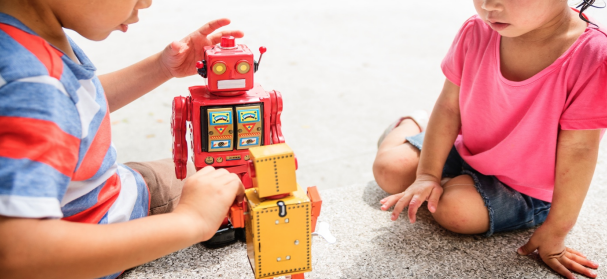
The game is fun
Look at children or adults playing, they often smile and laugh. Of course, the game can have its moments of frustration and difficulties (Who will take first place? Why can’t I keep this block up?) but overall the game is fun, triggering feelings of joy, joy, motivation, and excitement.
Games develop imagination and creativity
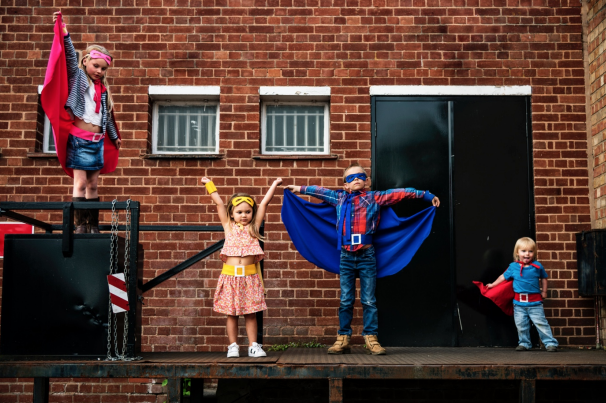
Albert Einstein said, “Imagination is more valuable than knowledge.” Knowledge is also important, but it is imagination that drives us to discover and create new things. Perhaps the most obvious benefit of playing games is that it increases the child’s imagination and creativity.
Children, especially while playing games such as free play, symbolic play, role games, produce thoughts in their own imagination and determine their own scenarios. By putting these thoughts into action, shapes, and words, they create their own unique worlds. For example, while playing a restaurant game in the garden, they can position a cardboard box as a table, a wooden stick they find on the floor as a tablespoon, and a cone as lunch. Children’s imaginations are limitless and encourage them to observe, explore and find solutions to their environment.
Game increases self-confidence
While playing games that develop creative thinking and imagination, children have the opportunity to lead and lead, unlike other times. They also develop problem-solving skills. As they solve problems, learn from mistakes, and make decisions on their own, their self-confidence increases.
Play is self-expression and communication
Children improve their communication and language skills whether they play alone or with their peers, teachers, or parents. Children who learn by imitating what they hear and see, discover new words, new emotions, and new behavior patterns by both repeating what they know and imitating what they hear from their environment. When they are alone, they gain communication skills by chatting with their toys or imaginary friends. It is important that parents, teachers, or caregivers regularly, if not constantly, participate in children’s play, allowing children to take the lead role in these games, encouraging their language development and experience of self-expression. Play allows children to communicate ideas, understand others through social interaction, achieve deeper understanding, and build stronger relationships.
Play teaches cooperation and empathy
While playing with their peers, parents, or teachers, children sometimes learn to lead and sometimes to adapt to a game someone else has set up. They discover ways to collaborate with others in an imaginary or structured game. Children are egocentric and focus more on their own feelings, desires, and demands. But group games teach them to step by step to care about the feelings of others as well. Thus, they realize that their own wishes cannot always be the priority and that sharing is also important. They enjoy succeeding together and having fun together. They learn to empathize by observing their friends’ reactions. Children who can meet with a quality early childhood education and care progress faster in learning cooperation and empathy under the guidance of their parents and teachers.
Play is essential for physical fitness

The World Health Organization recommends that children devote at least one hour a day to physical activity. Physical activities positively affect not only the physical health of children but also their mental health. Children need physical play that gets them moving. While they learn to use their bodies with physical games, they also strengthen their brains. Physical games help children: sharpen reflexes, practice movement control, develop fine and gross motor skills, develop greater balance, build strong muscles, improve bone density, and increase cardiovascular function.
The game is an excellent teacher
The game is like a teacher who prepares the child for life and presents him with a simulation of the world. Children embark on an entertaining and instructive adventure where they can understand the world, meet emotions, create their own knowledge and experiences, and develop both their brain and physical strength through play. Through games, they discover how to produce in groups, to be happy and sometimes sad, to love, to forgive, to share, to negotiate, to think creatively, to solve problems and conflicts, to communicate, and to speak for themselves.
Early Education: “Let them play, let them be the lead!”

One of the most important duties for us parents and professionals providing pre-school education/care services is to encourage our children to play, to introduce them to all kinds of games that are age-appropriate and enable them to learn while having fun, starting from their infancy, to accompany our children frequently in games and to allow them to be the leading roles while doing this, to create ample opportunities for them to explore life through games. Free games, imaginary games, mind games, role games, physical games… Let children play games, experience every game, and meet with basic skills that prepare them for life from an early age…
Parents and trainers who want to join the Pre-Education family or want to get detailed information about our services can reach us by filling out the application forms on our website.
